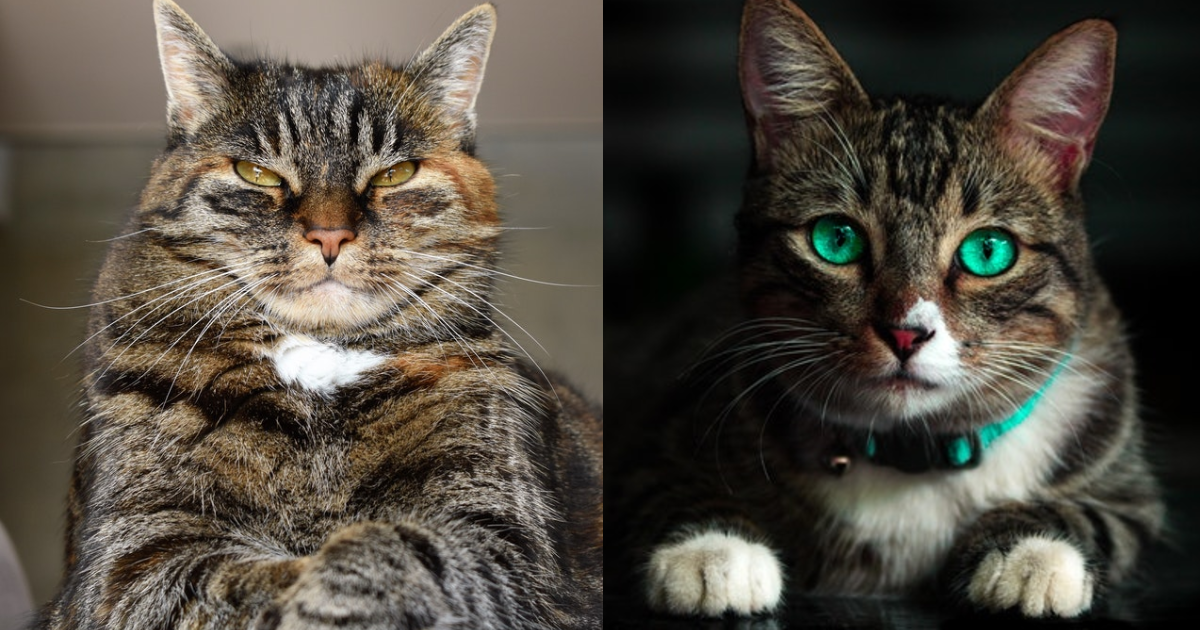There are 5 major feline personality types – which one describes your cat?

Did you know that there are 5 distinct personality factors for our feline friends?
We all have different personalities, it’s what makes you, you. The science behind this study is already very interesting but did you know that even cats can be categorized according to their personalities?
An intensive study from researchers in Australia and New Zealand created a detailed model of feline personality traits – which, surprisingly, also correlated with known models of human personality!

PLOS One, an online journal published a study in 2017 detailing a survey of 2,802 cats. The owners of these cats were asked to rate their pet’s personalities based on personality traits listed by the researchers.
The people conducting the studies were able to narrow down the results into what they now call “The Feline Five”.
5 feline personality types
For these scientists, being able to study specific animal behaviors and personalities is vital – and this research has proven that they are on the right track. Being able to decode an animal’s personality will greatly assist pet owners and caretakers in caring for their pets properly.

This can be a great asset!
According to the researchers, the “feline five” personality factors are:
- Neuroticism (Skittishness)
- Extraversion (Outgoingness)
- Dominant
- Impulsiveness
- Agreeableness
The “feline five” explained

-
Neuroticism (Skittishness)

The cats that got the highest scores in this personality type are more nervous, shy, and fearful of people and other cats. These cats would prefer to hide away in their “safe” place when they’re not comfortable with the people around them.
Those who have lower scores tend to be calmer and more trusting of humans. This category would resemble the neuroticism in personality types for people.
Tip:
If you have pets like this, it’s best to provide them with a cat tunnel, a box that they can use to hide, or something that will become their comfort zone.
-
Extraversion (Outgoingness)

This feline personality factor is the equivalent of “extraversion” in humans. Cats that score high on this factor are very outgoing, curious, smart, and active, while the cats that have low scores can be described as aimless and even prone to quitting.
Extraverted cats always need energy outlets to feed their curiosity and playfulness. When bored, they may become destructive to release all those extra energies.
Tip:
As a pet owner, make sure that you give your outgoing cat plenty of toys and time for playing.
-
Dominance

This feline personality type doesn’t have a human personality equivalent. Cats scoring high in this personality can be aggressive and may even bully their peers. Those who have the lowest scores are submissive and friendlier to other cats.
Cats displaying dominance over other cats can be stressful for a cat owner. They could start bullying the other cats on the household for food, litter box, and even with their toys.
Tip:
If you have a cat that displays dominance over its peers, try to separate each cat’s food bowls, litter trays, toys, and even separate them into their own personal spaces.
-
Impulsiveness

A high score in this personality trait showed that these cats can be impulsive and even erratic. Those who had lower scores were more predictable. We have to remember that an impulsive cat may only be reacting to a trigger or something that is stressing them out.
These cats may have different reactions to different situations, but there are also instances where a cat can react differently to the “same” trigger. This is when they have learned to cope with the situation.
Tip:
Knowing that your cat is impulsive, it’s better to refrain from shouting which can add stress and anxiety to the situation. It’s better to set up routines that will make your cat feel at ease.
-
Agreeableness or Friendliness

Cats scoring high on this personality factor are, unsurprisingly, described as affectionate, sweet, and friendly. Those who have lower scores can be irritable and even solitary.
Friendly cats are the ones that welcome you into their home, and love to play with their peers and to communicate and cuddle.
Tip:
This feline personality type is probably what you should go for if you are planning on adopting more than two cats.

Can a cat’s personality change?
While the researchers have noted that animal personalities tend to be stable, there are, however, instances when an animal’s personality can change.
An animal’s personality can change during the course of a lifetime, especially if stressful events or traumas have happened.
There are also correlations between a cat’s personality and age. The connection between the two suggests that older cats tend to be less outgoing than their younger peers. Some of them also show traits of dominance.

Isn’t it fun to learn about your cat’s personality?
Even though cat owners know each cat is unique and special – being able to know their personality type allows us to take care of them in better, more appropriate ways.
Watch the video below.
Please SHARE this with your friends and family.
Source: Catster, Plos, Denverpost, Meowingtons, AustraliaScience, University of South Australia